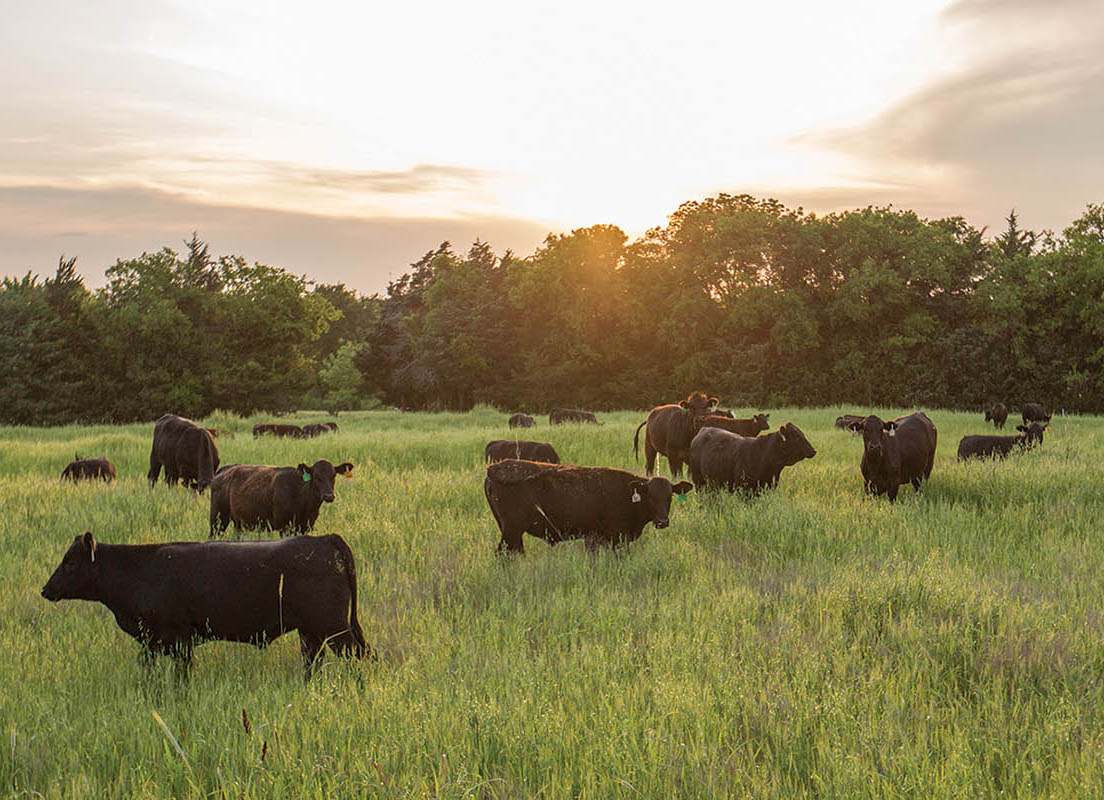Wed, 21 Sep 2022 10:21:50 CDT

Several agricultural leaders testified before a house ag subcommittee on conservation this week, including Shayne Wiese, who is a cattle producer from the state of Iowa. Senior Farm and Ranch Broadcaster, Ron Hays, is featuring comments from Wiese during his testimony to the House Ag Committee this week on conservation.
“I am the fifth generation of my family’s cattle ranch in west central Iowa, and we specialize in the production of high-quality Hereford bulls to sell to commercial cow-calf producers,” Wiese said.
Wiese represented the National Cattlemen’s Beef Association at the subcommittee hearing, offering supportive comments for CRP (Conservation Reserve Program) and for the EQIP (Environmental Quality Incentives Program). Regarding the EQIP program, he said NCBA is grateful for that 50 percent cost-share that was part of the 2018 farm law.
“One important feature of EQIP has been its focus on livestock operations and we appreciate the 50 percent funding designation for livestock-related practices in the 2018 farm bill,” Wiese said. “Federal funds spent on conservation are a good investment in our country’s natural resources and it is vital to ensure that livestock producers have access to these valuable resources for grazing and feeding management.”
While the intent of EQIP is to make conservation funding and technical assistance accessible to all providers, Wiese said barriers to entry often disincentivize producers from using NRCS programs.
“Recently, my family’s cattle ranch applied to receive EQIP cost-share funding, but after months of waiting, we gave up and completed a water infrastructure project without the assistance of the USDA,” Wiese said. “I see many other opportunities for our ranch to improve the land and environment with EQIP funding.
By creating additional hurdles for producers that want to use these programs, Wiese said the committee and USDA limit access while also limiting the government’s ability to record rancher’s environmental improvements.
“I encourage the committee to support initiatives in the farm bill that allow NRCS programs to further innovation and common-sense land management,” Wiese said.
In Q&A after his testimony, Wiese explained why he couldn’t wait on the USDA any longer to start his project.
“We are in a drought, and we needed water infrastructure,” Wiese said. “We have to water our cattle. Our biggest dilemma with it was, I applied, and we waited and waited and finally we just had to bite the bullet and do it.”
Wiese also weighed in on the CRP program saying it needs to be updated to reflect what is going on with climate-smart conversations.
“CRP has the potential to provide significant and environmental benefit, but currently fails to maximize its value,” Wiese said. “Changes made in the 2018 farm bill limit our ability to effectively manage CRP acreage with grazing.”
Grazing is a valuable tool in maximizing carbon sequestration, Wiese said, but it is not a tool that ranchers are able to use on CRP acreage without penalty.
“Livestock graze mature, stagnant grasses and allow the growth of green, carbon capturing plants,” Wiese said. “Our ranch took some land out of CRP and transitioned it into our cattle rotational grazing system recently. We have seen improvements in all pastures due to more grazing options.”
Grazing access to CRP acreage, Wiese said, will promote more opportunities for beginning ranchers to graze responsibly and provide existing pastures more rest and recovery during drought years.
“In terms of CRP, we are really big fans of it, but always having that worry of penalty if we do have to emergency graze or hay, and our county isn’t approved for that, it is a hit to the business,” Wiese said. “It is a cash flow hit, so I think anything that provides flexibility for business, and anything that allows better grazing management from a cattle perspective is a win-win for everybody.”
Click the LISTEN BAR below to listen to Shayne Wiese’s testimony before a house ag subcommittee on conservation.
The Beef Buzz is a regular feature heard on radio stations around the region on the Radio Oklahoma Network and is a regular audio feature found on this website as well. Click on the LISTEN BAR below for today’s show and check out our archives for older Beef Buzz shows covering the gamut of the beef cattle industry today.
Listen to Iowa Cattleman Testify Before House Ag Subcommittee on Conservation
click to play audio or right-click to download















